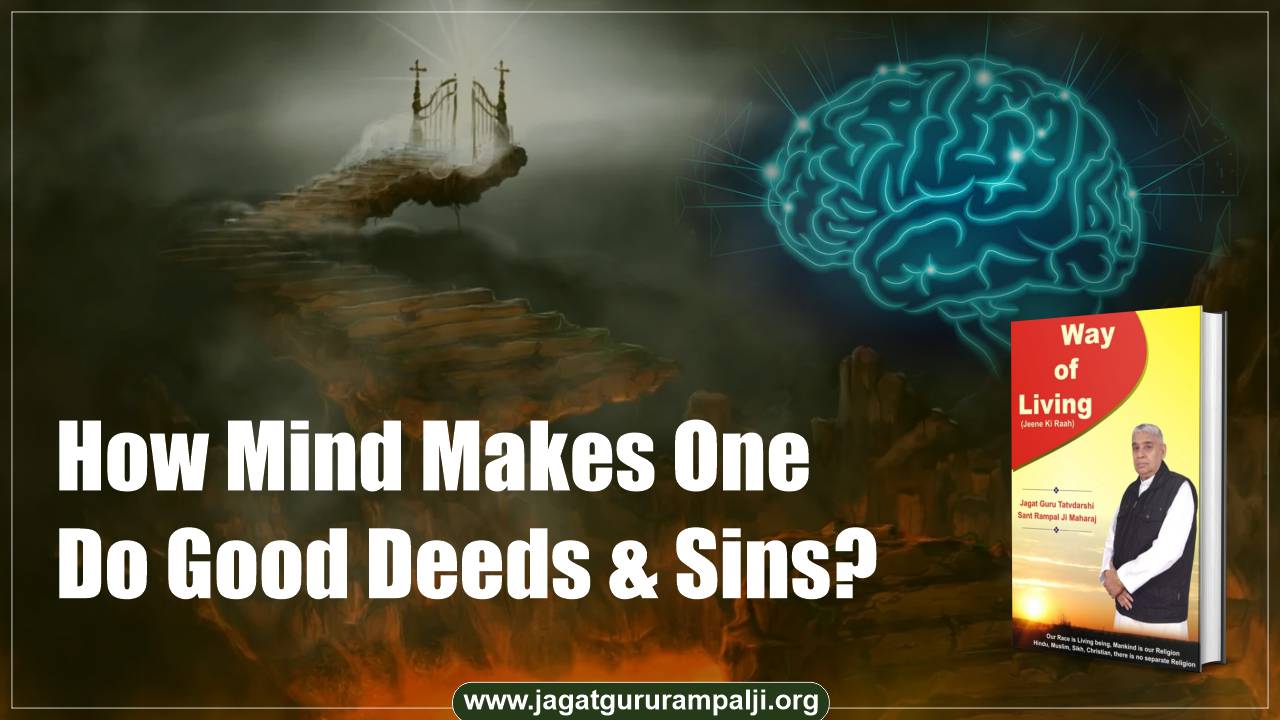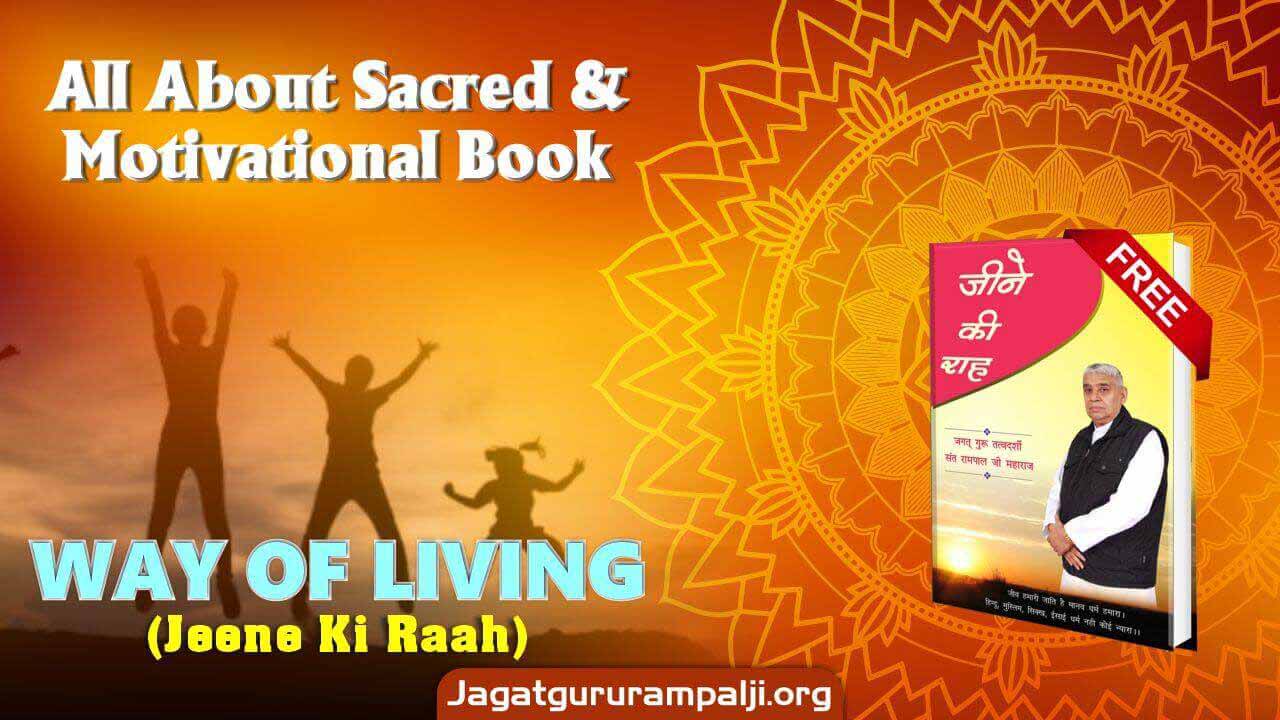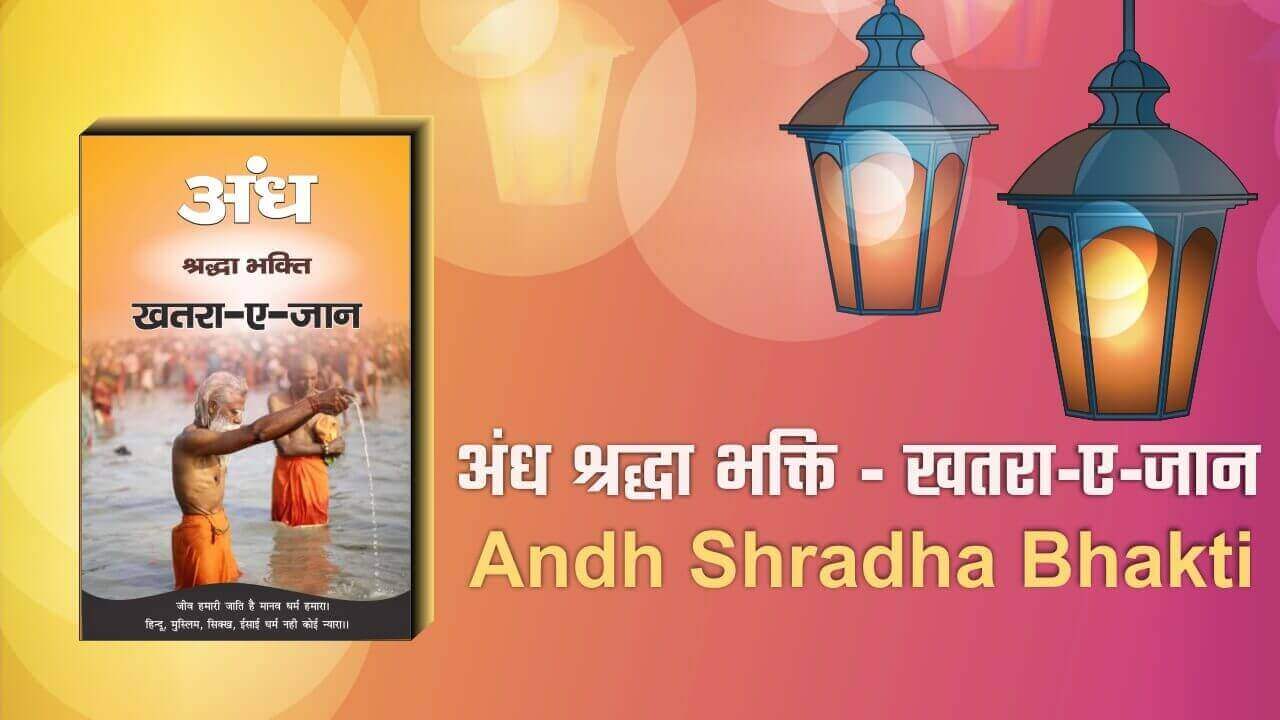Man (mind) itself is the fearsome Kaal. It makes the soul dance to his tune. On seeing a beautiful woman, it arises desire to have sex with her. On having sex with a woman, the man (Kaal Niranjan) had the pleasure, but he puts the sin on the soul’s head.
{At present, the government has made stringent laws. If a man rapes a woman, he gets punishment of ten years of imprisonment. If someone rapes a minor, then he gets punishment of life imprisonment. The pleasure is only of two minutes by the stimulus of Kaal and the grief is equivalent to a mountain. Therefore, it is beneficial to restrain one’s mind in advance with the reins of knowledge.}
Summary of Anurag Sagar Page 154: -
On seeing someone else’s wealth, the Man (mind) instigates to appropriate it. On committing a theft, a soul gets the punishment. To slander someone and approrpriate someone’s wealth is a sin. In this way, Kaal keeps a soul trapped in the bondage of actions. Kaal himself in the form of man makes one oppose a saint and rebel against a Guru; which is a heinous sin.
Character of Niranjan = Trap of Kaal
Supreme God Kabir Ji has stated that – Dharmdas! I will explain to you the trap of Dharm (Dharmrai = Kaal). Kaal Niranjan by entering into Shri Krishna’s body delivered the knowledge of Gita. By telling Arjun that Karmyog is the best, he made him fight. He misled Arjun through Yog of Knowledge. Arjun was already speaking noble language, which was knowledge. He was saying that instead of fighting a battle and killing nephews, brothers, brother-in-laws, father-in-laws, and paternal uncles of our own clan, it is better that we sustain ourselves by begging. I do not need such a kingdom which is obtained through sin. By frightening and threatening him, Kaal made him fight the battle, and made him go to hell. Making the excuse of Yog of Knowledge, by emphasising on Karm Yog, Kaal made Arjun commit a heinous sin.
FAQs about "How Mind Makes One Do Good Deeds And Sins?"
Q.1 What is the concept of "Kaal" and how does it relate to human desires and actions?
"Kaal" is the God of 21 universes who lead humans to act on their desires and commit sinful actions. It is portrayed as the driving force behind human actions and desires, leading to sinful consequences.
Q.2 What is the significance of restraining one's mind with the "reins of knowledge"?
Restraining one's mind with the "reins of knowledge" is suggested as a means to overcome the influence of "Kaal" and avoid sinful actions. It emphasizes the importance of acquiring knowledge to control one's desires and actions.
Q. 3 Who is "Jyoti Niranjan" and what is their role?
Jyoti Niranjan" is depicted as a character who represents the trap of "Kaal." This character embodies the negative influence that leads individuals to commit sinful acts and oppose spiritual figures like saints and Gurus.
Q.4 How does this text relate to the teachings of Supreme God Kabir Ji?
The text discusses how Kaal/Niranjan, misled individuals like Arjun by emphasizing actions over knowledge. Supreme God Kabir Ji's teachings contrast with this approach, emphasizing the importance of noble actions and avoiding sinful deeds.
Q.5 Can you explain the role of Kaal Niranjan in the context of Shri Krishna and the Gita?
In this text, it is suggested that Kaal Niranjan entered Shri Krishna's body and delivered the knowledge of the Gita. However, the text implies that Kaal misled Arjun by emphasizing Karm Yog (action) over knowledge, leading to a heinous sin, the battle in which Arjun participated.
Recent Comments
Latest Comments by users
If you have any query regarding the above content, please email us at [email protected], we will try to solve it with proof.






Vishal Verma
I'm a naturally calm and humble person who strives to stay away from vices, but I'm struggling to control two dominant vices in my life: anger and lust. I've tried meditation as suggested by some people and Gurus, but it hasn't been effective so far. These vices constantly distract me and hinder my tasks. Can you please suggest an effective way to overcome these vices?
Satlok Ashram
Dear reader, we appreciate your engagement with our article. Humans are composed of various elements, and the influence of the three gunas often makes it challenging for them to free themselves from their vices. Mere control of the mind may not be sufficient because the mind is an element of Kaal Brahm, who holds immense power. To truly overcome these vices, it is recommended to seek the grace of the complete God through initiation from a complete Guru. We suggest reading the book "Jeene Ki Rah" and listening to spiritual discourses by Sant Rampal Ji Maharaj to understand how to effectively control these vices.